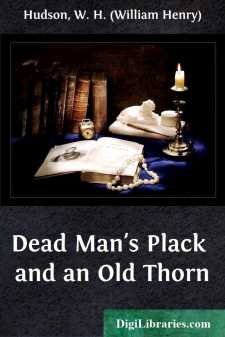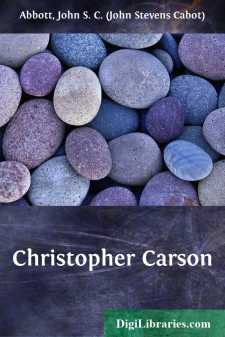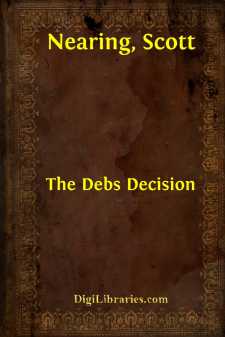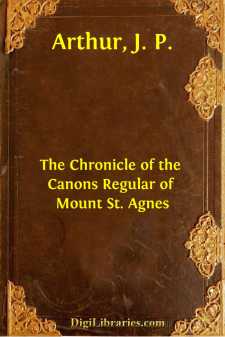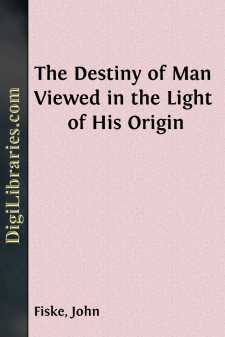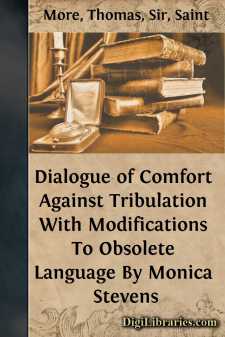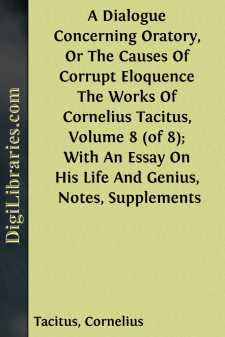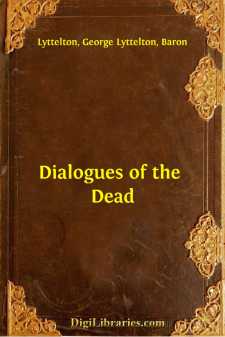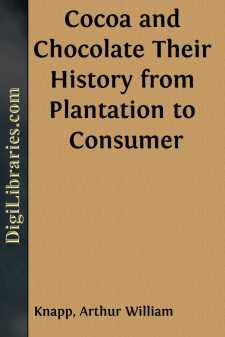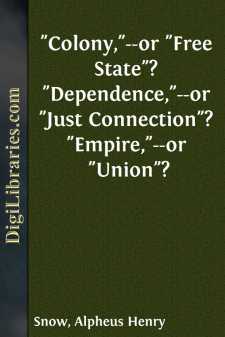Non-Classifiable
- Non-Classifiable 1768
Non-Classifiable Books
Sort by:
"The insect tribes of human kind" is a mode of expression we are familiar with in the poets, moralists and other superior persons, or beings, who viewing mankind from their own vast elevation see us all more or less of one size and very, very small. No doubt the comparison dates back to early, probably Pliocene, times, when some one climbed to the summit of a very tall cliff, and looking down...
more...
CHAPTER I. Early Training. Birth of Christopher Carson.—Perils of the Wilderness.—Necessary Cautions.—Romance of the Forest.—The Far West.—The Encampment.—The Cabin and the Fort.—Kit an Apprentice.—The Alarm.—Destruction of a Trading Band.—The Battle and the Flight.—Sufferings of the Fugitives.—Dreadful Fate of Mr. Schenck.—Features of the Western Wilderness.—The March....
more...
by:
Scott Nearing
1. THE SUPREME COURT The Supreme Court of the United States on March 10, 1919, handed down a decision on the Debs case. That decision is far-reaching in its immediate significance and still more far-reaching in its ultimate implications. What is the Supreme Court of the United States? Article III, Section I of the Constitution provides as follows: "The judicial power of the United States shall be...
more...
by:
J. P. Arthur
CHAPTER I Of the first founders of the Monastery at Mount St. Agnes, and how Master Gerard Groote first pointed out this place to them The House of Mount St. Agnes, which lieth outside the walls of the town of Zwolle, and on the eastern side thereof, had its origin and completion in this way. The place used to be called in the vulgar tongue Mount Nemel and lieth not far from Zwolle, but one may...
more...
by:
John Fiske
I. Man’s Place in Nature, as affected by the Copernican Theory. When we study the Divine Comedy of Dante—that wonderful book wherein all the knowledge and speculation, all the sorrows and yearnings, of the far-off Middle Ages are enshrined in the glory of imperishable verse—we are brought face to face with a theory of the world and with ways of reasoning about the facts of nature which seem...
more...
BOOK ONE VINCENT: Who would have thought, O my good uncle, a few years past, that those in this country who would visit their friends lying in disease and sickness would come, as I do now, to seek and fetch comfort of them? Or who would have thought that in giving comfort to them they would use the way that I may well use to you? For albeit that the priests and friars be wont to call upon sick men to...
more...
A DIALOGUE CONCERNING ORATORY, OR THE CAUSES OF CORRUPT ELOQUENCE. . General introduction, with the reasons for writing an account of the following discourse. . The persons engaged in the dialogue; at first, Curiatius Maternus, Julius Secundus, and Marcus Aper. . Secundus endeavours to dissuade Maternus from thinking any more of dramatic composition. . Maternus gives his reasons for persisting. . Aper...
more...
INTRODUCTION. George, Lord Lyttelton, was born in 1709, at Hagley, in Worcestershire. He was educated at Eton and at Christchurch, Oxford, entered Parliament, became a Lord of the Treasury and Chancellor of the Exchequer. In 1757 he withdrew from politics, was raised to the peerage, and spent the last eighteen years of his life in lettered ease. In 1760 Lord Lyttelton first published these...
more...
PREFACE Although there are several excellent scientific works dealing in a detailed manner with the cacao bean and its products from the various view points of the technician, there is no comprehensive modern work written for the general reader. Until that appears, I offer this little book, which attempts to cover lightly but accurately the whole ground, including the history of cacao, its cultivation...
more...
"COLONY,"—OR "FREE STATE"? "EMPIRE,"—OR "UNION"? From the time of the acquisition of Porto Rico and the Philippines, in 1898, under a Treaty with Spain which left indefinite the relations between the American Union and those regions, the question of the nature of this relationship has been discussed. The Republican party, which has been in power ever since the war,...
more...


